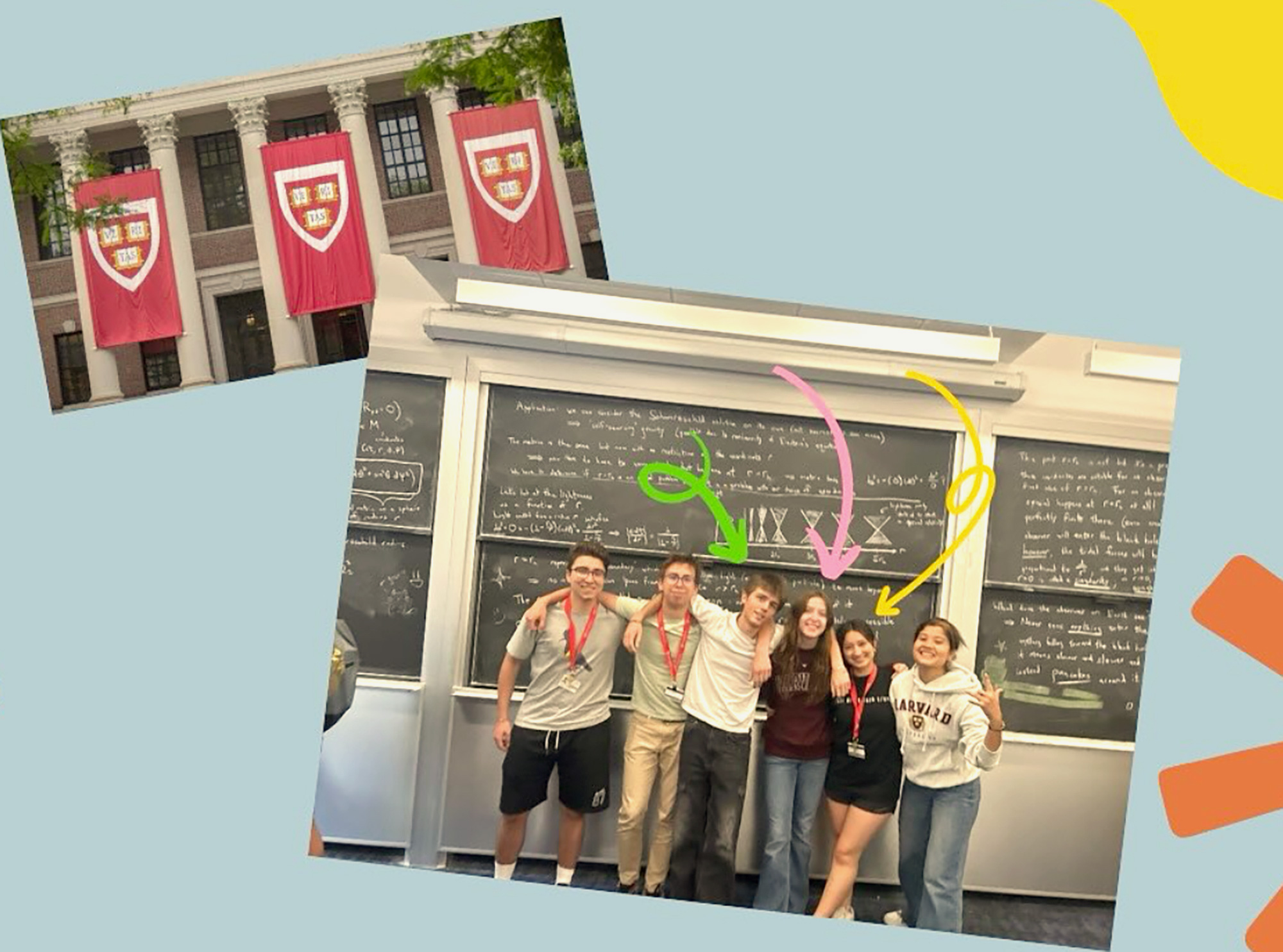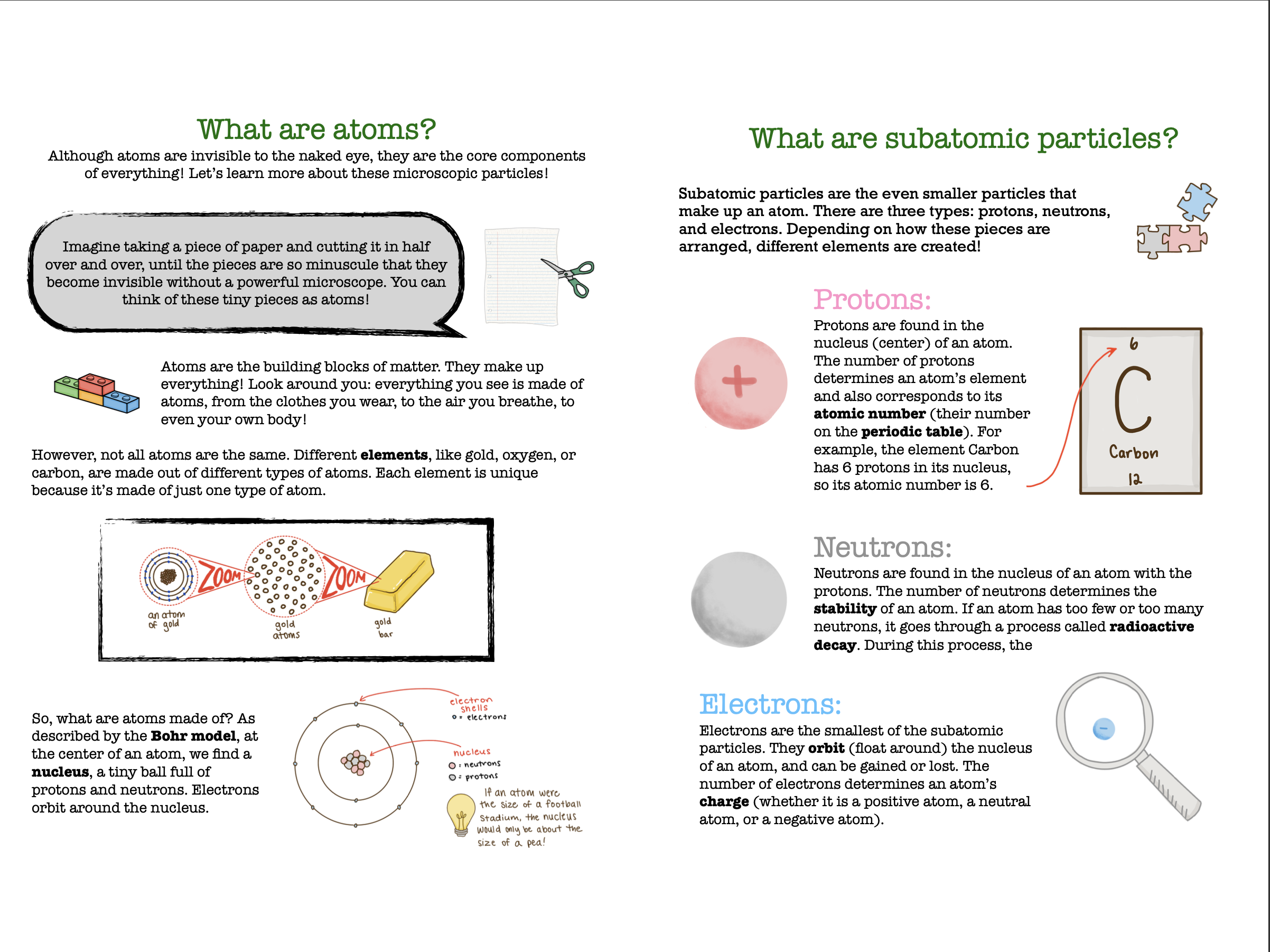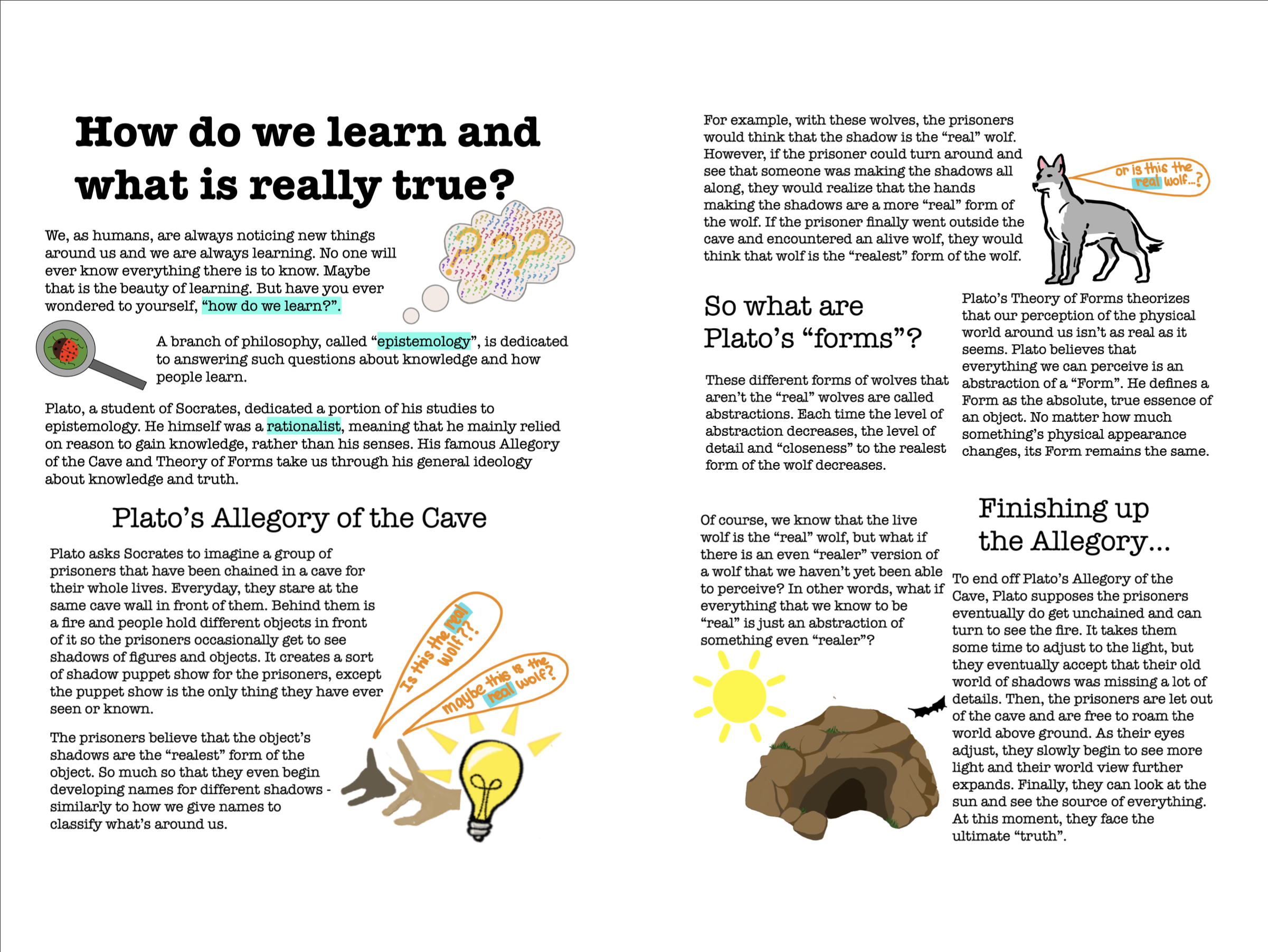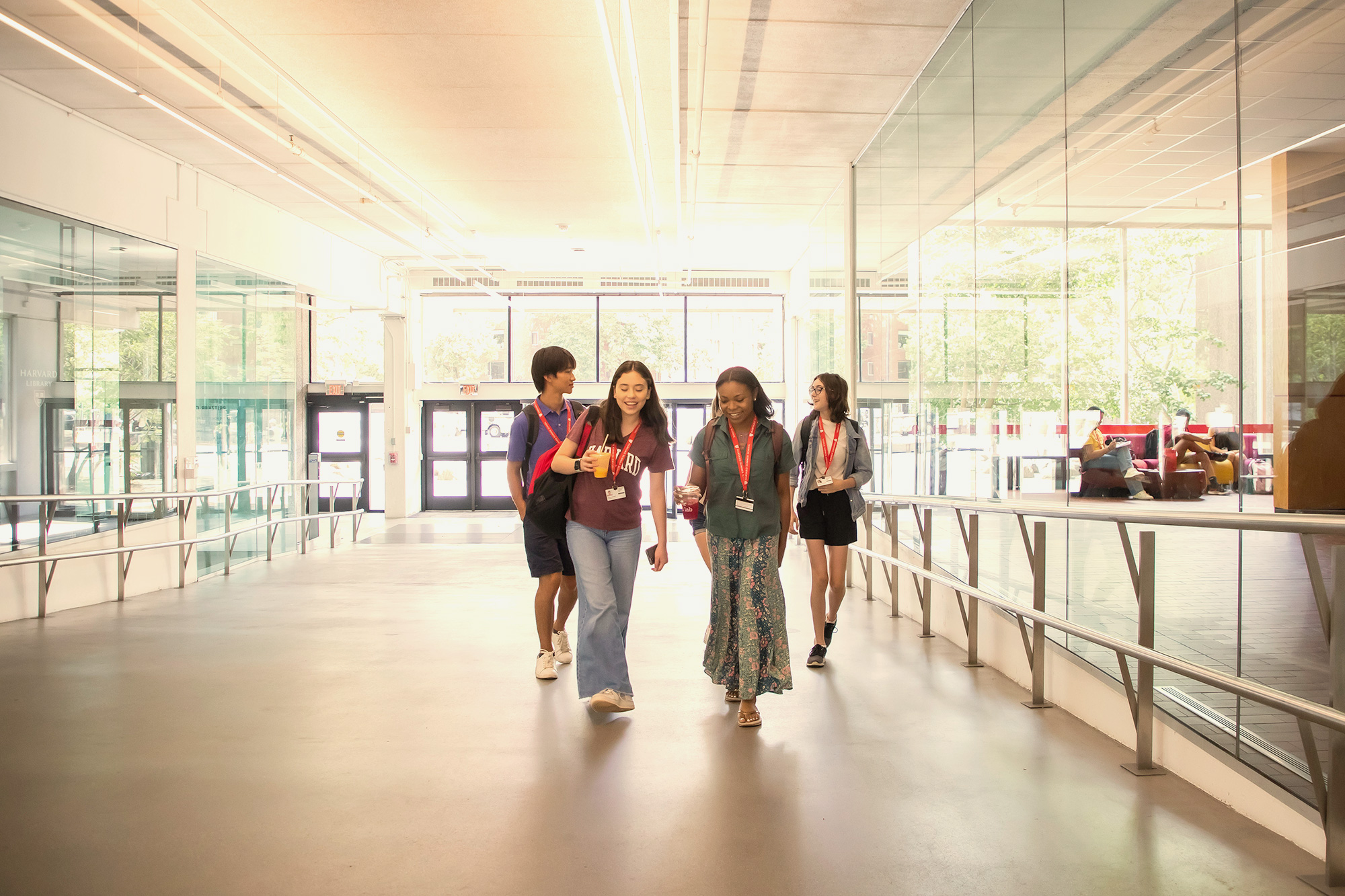On this page
When Antonella Preciado, Lauren Martin, and Felix Fauvet met at Harvard’s Pre-College Program in 2024, they didn’t anticipate a unique collaboration.
The three hail from California, Michigan, and France, respectively, and attended the course “Introduction to Relativity: From Cosmic Rays to Black Holes” together. Their coast-to-coast and international perspectives inspired a book project, “Discover the World.”
Published in November 2024, the illustrated children’s book invites readers to explore a wide range of topics in philosophy and physics, featuring interviews with subject matter experts. In addition, 50 students from 20 countries contributed their perspectives — 15 of whom also participated in Harvard Summer School.
We had the opportunity to speak with the authors about how this project came to fruition.
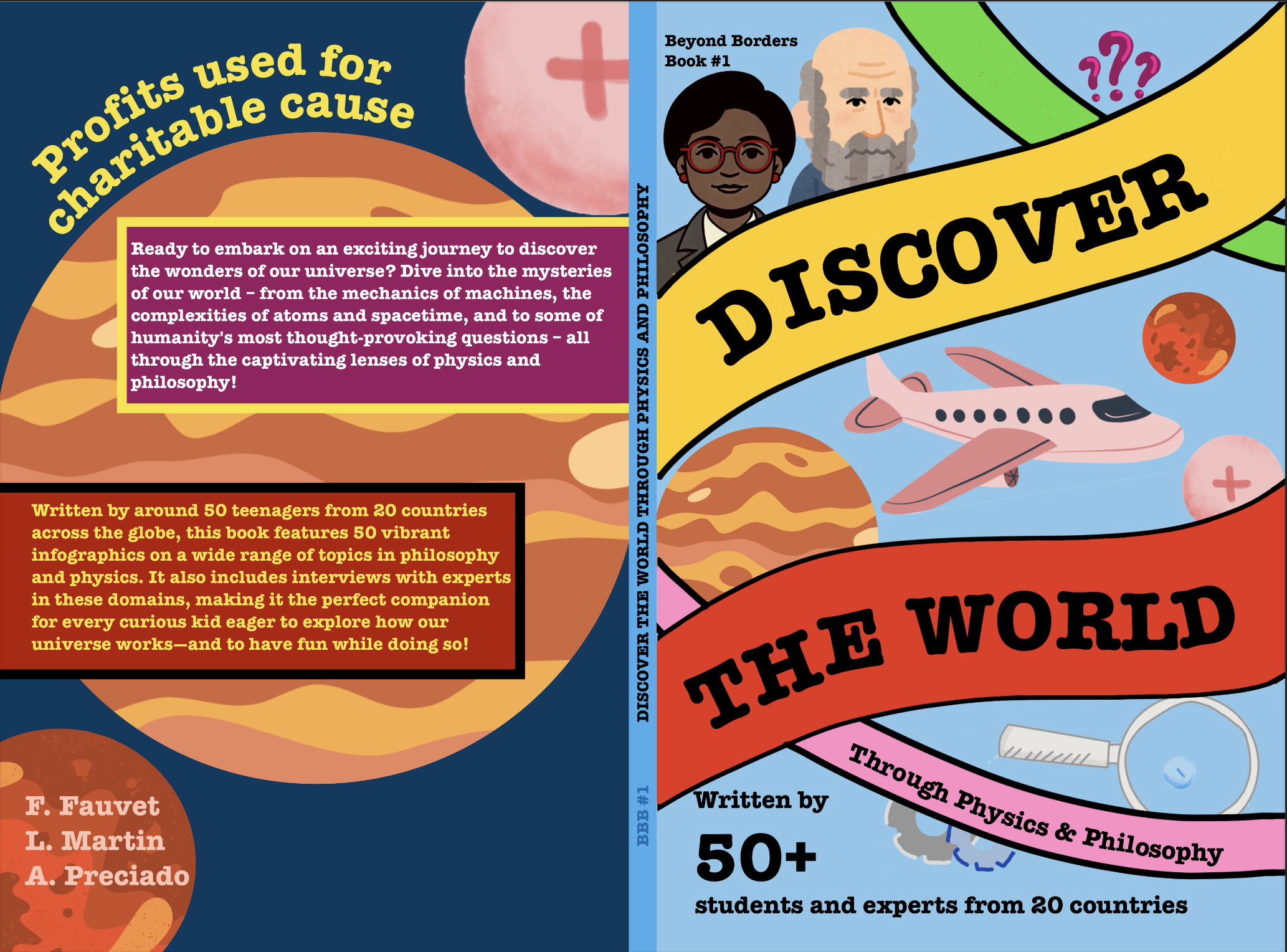
How did this collaboration come about?
Martin: We discovered we all shared a passion for physics, philosophy and humanitarian work. After the course, we continued our friendship and we decided that it would be nice if we all joined together to do our own humanitarian projects.
After some brainstorming, we decided to write a book that would cover all of those different subject areas.
What was the development process?
Fauvet: The first stage was turning our broad idea of writing a collaborative children’s book into a very specific and detailed plan.
For a few weeks, we would often call every day, and we discussed every aspect of the book. Afterward, we each reached out to our friends to invite them to collaborate on the book. Once we had our 50 participants, we instructed them on what each mini chapter would look like, what topics it should cover, and also informed them on the time frame of the project.
Each participant would send their topic and an outline, which we would provide feedback on. We also gave feedback on subsequent drafts.
Example pages from “Discover the World.”
To support them during writing, each of us chose a specific area of expertise and invited them to contact the appropriate editor for help. We also tried to provide tips throughout the process and created a group chat to facilitate communication.
We also each contacted different experts in the field of physics and philosophy to feature interviews in the book in an effort to highlight the very human aspects of these domains.
We actually met two of the five experts we interviewed at Harvard, including our teacher. Finally, once we had all the content, we edited the mini-chapters, compiled the different sections into a more coherent order, and worked on the design of the book cover and other minor details. And then we published it!
What were some of the challenges you encountered? How did you overcome them?
Preciado: The main challenge was communication, especially with these 50 people who might not know all of us, have seen us before, or have the full context of the project. But I think it was nice because each of us had some sort of connection to each other.
Felix and I were able to get people from around the world and Lauren was able to get a lot of friends from other parts of the United States to also collaborate.
We created a WhatsApp group chat where we included all the members and if anyone had any questions, they could ask it there and we would send updates.
We make sure to encourage the the authors to do the work and to know that we’re going to prove it.
What was the most rewarding part of this experience?
Fauvet: Compiling all the chapters and interviews into one manuscript, because it had been, you know, a very long and sometimes a bit difficult to see progress along the way.
It sometimes felt like we were never going to finish the book, so seeing the beauty of the book come along together was really, really rewarding.
How did you apply what you learned at Harvard Summer School? What support did you receive along the way?
Martin: We did definitely use a lot of things that we learned in our course to help contribute to the book. Some of the authors that we met wrote about things that we learned in that course, such as time dilation.
We used the knowledge that we learned to help troubleshoot, like fact checking all the mini chapters.
Beyond that, Harvard Summer School definitely helped us with the collaboration aspect because of being in the course with so many people from so many backgrounds, all with different skills. It really helped us learn how to work together and bridge the time zone gap.
It was also an opportunity. It helped us connect with people from different places, with different passions. It was really inspiring.
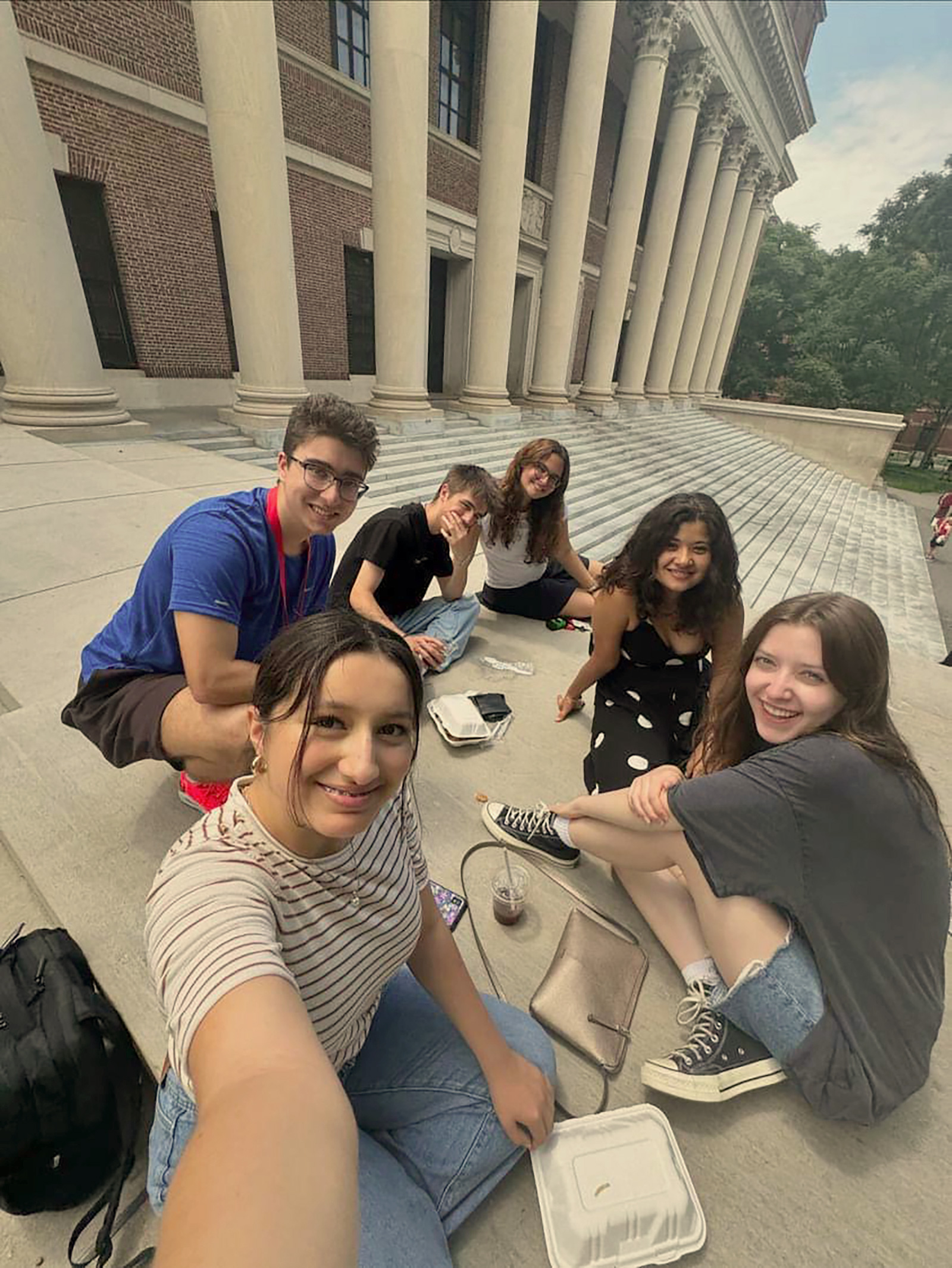
What advice do you have for future Harvard Summer School students who want to connect with other students?
Fauvet: My main advice from my experience at Harvard Summer School would be to talk to everyone. At the end of the day, you’re just at the place physically for two, four, or maximum seven weeks. Really take this opportunity and make the full of this short time frame to meet the most number of people possible.
Preciado: Really try to build these connections first and make sure to spend time with them, go out with them, do homework with them. Don’t stay in your room and do nothing, do activities and talk to people.
When you leave, I think it’s easy to go into the mindset of, ‘we’re never going to see them again,’ because they live in such different parts of the world. But we live in such an interconnected world where we have so many forms of media to connect us and to communicate, so it’s honestly really simple, even with different time zones. Just set up a schedule to call!
It’s also it’s really rewarding to hear different perspectives from your own community. Keep reaching out to them, even when it seems that maybe you won’t see each other again.
How can Harvard Summer School students make the most out of their experience?
Martin: This is a once-in-a-lifetime experience for a lot of people, so just take advantage of it.
In your courses, if you ever need any help or you have any questions, just make sure to ask. The instructors are always available and ready and willing to help if you need it.
Don’t be afraid to put yourself out there and take some risks and make the most of your experience.
This interview has been lightly edited for clarity and length.
